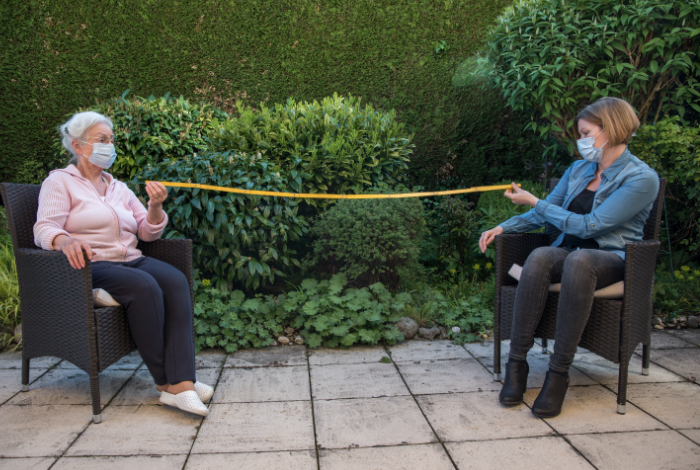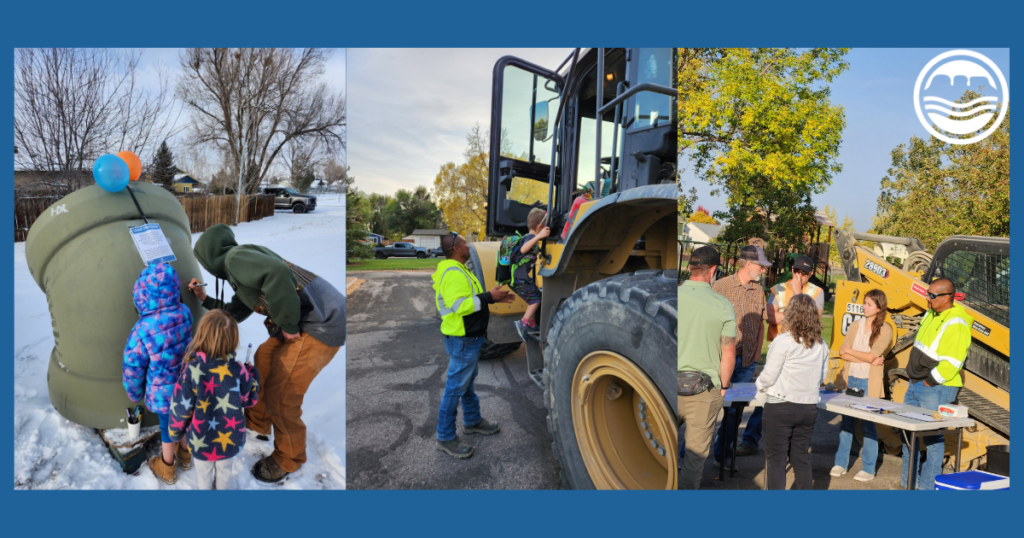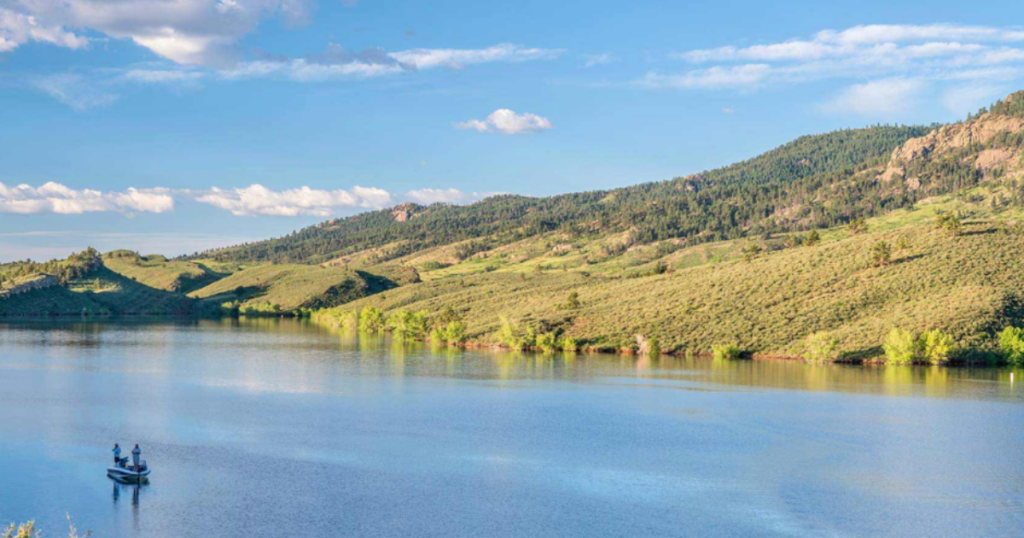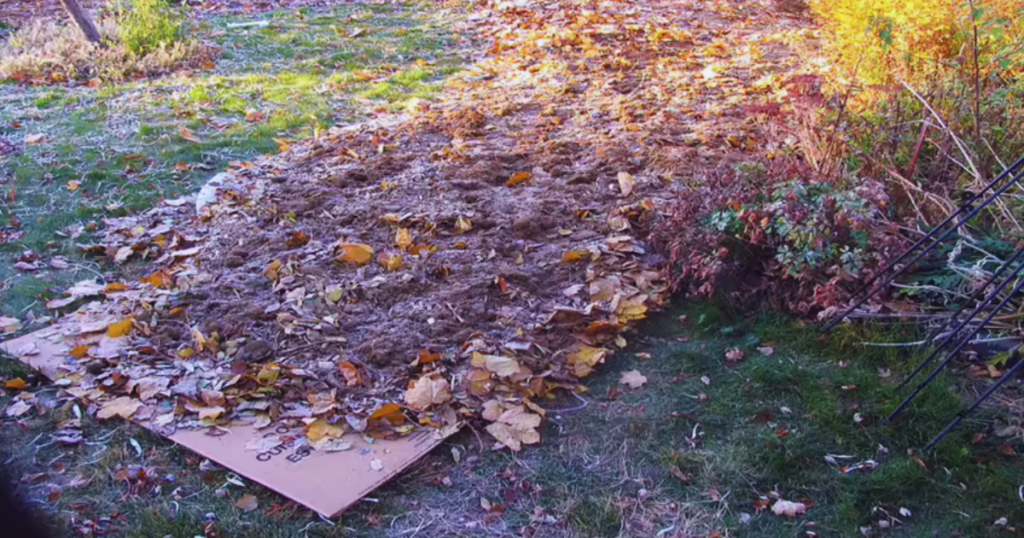In light of COVID-19, here’s how to enjoy the great outdoors in your own backyard
Over the years, backyard living has become increasingly popular. With social distancing and the COVID-19 global pandemic, making our Colorado backyards a comfortable space to relax and play has taken on a whole new meaning. While we all may be sticking a little closer to home this summer than we may have initially planned, it doesn’t have to be all bad. You can put this time to good use by sprucing up your yard and turning it into your summer oasis.
The first thing you’re probably thinking is, how can I get a magazine-cover-quality yard? For most people this means lush green grass as far as the eye can see. But did you know, landscape water usage, especially for grass, has been identified as one of the largest demands on the water supply? Which also means it’s one of the biggest culprits for that spike you see in your water bills during hot Colorado summer months. But no need to panic. You can still have a beautiful yard that’s also water friendly by landscaping or Xeriscaping your yard and dialing in your water usage with a free sprinkler audit.
Make the most of this time and make your garden shine
Conserving water and having a lush yard are not mutually exclusive. It is possible to plant drought-resistant plants and trees that will thrive in our Colorado climate.
The semi-arid landscape of our great state means when it comes to gardening, we all need to put a little extra thought into what we are planting and growing. Water is a limited resource that we need to use judiciously.
One of the best ways to conserve is to incorporate Xeriscaping, which involves creating a healthy, beautiful landscape that also saves water. Not only does Xeriscaping reduce water usage by up to 50 percent, it also requires less maintenance (hello less mowing and more free time!) and can offer a vibrant garden all season long.
Replacing just 100 square feet of a traditional lawn with low-water plants can save you up to 1,000 gallons of water per year – just think of how much that will save on your water bill! That’s a lot of ice cream sandwiches for the summer!
Believe it or not, but xeriscaping is actually easy to do on your own. Fort Collins Utilities offers resources and inspiration that can help you start Xeriscaping, or incorporate it into your current yard. Pro Tip: Check out the Garden in a Box program we participate in with Resource Central every spring for Xeriscape planting made even easier (we’ll also have a limited number of boxes available for fall 2020 planting if you want to get started sooner).
Save it, don’t spray it
Maybe you’ve incorporated Xeriscaping into part of your yard, but you still want beautiful grass to run around in. We hear you and have you covered! As you fire up the sprinkler system for the season, it might seem simple: turn it on, set it and forget it. But sprinkler systems are a little more complicated than that. We recommend bringing in the pros to help ensure you are making the most of your water usage. And the good news is, we partner with Fort Collins Utilities to offer this service for free to Fort Collins-Loveland Water District customers.
As part of ongoing conservation efforts, this is the 11th year we will participate in the City of Fort Collins Sprinkler Audit Program to provide customers with free water-efficient evaluations for residential sprinkler systems. You can reserve your spot for a free sprinkler audit through September. When you complete your audit, you’ll learn how to save water by getting a full evaluation and customized watering schedule, while learning how to find leaks and keep your yard and plants healthy all summer.
The audit takes about an hour and a half during the weekdays. The water savings and the benefits are plentiful. During 2019 our District saved over 2.7 million gallons of water due to changes implemented after the audit. While that’s great news for us, it’s also great news for our customers who completed an audit because water savings = $$ savings.
Pro Tip: Already had a sprinkler audit in previous years? Sprinkler audits can actually be done every year and are a great item to add to your summer yard prep checklist. It’s always a good idea to have your system checked for leaks when you turn it on for the season. You also want to make sure your scheduling system is still there as it’s possible when you turned off your system for the winter that your new water efficient schedule was erased. Sprinkler audits are a quick and easy way to keep you seeing green and saving green.
Socially distanced audits
In light of COVID-19, sprinkler audits have been reformatted to take into account the health, safety and well-being of customers and employees. Auditors will take protective safety measures to maintain physical distance and will also use personal protective equipment. Our number one priority is the health, safety and well-being of our customers and employees. As a result, audits have been modified to be contactless and minimize in-person interactions.
Before scheduling your audit, you will be asked a number of pre-screening questions to ensure everyone’s health and safety. You will also be asked these questions again before the audit program. During your audit, auditors will still come to your home, however protective safety measure have been implemented including maintaining physical distance and the use of personal protective equipment. Auditors will not come inside your house, so customers with their controller inside their home will not be eligible for audits this year.
We all want a beautiful yard to enjoy during the summer months. Fortunately, a perfectly landscaped yard doesn’t mean you need to crank up the sprinklers and see a spike in your water usage and bill. With just a few simple tweaks and by taking advantage of our water conservation programs you can keep your money in your pocket, not on your lawn.
Looking for additional water-saving tips? Follow us on Facebook for information on how you can save water year-round.
 Skip to content
Skip to content








